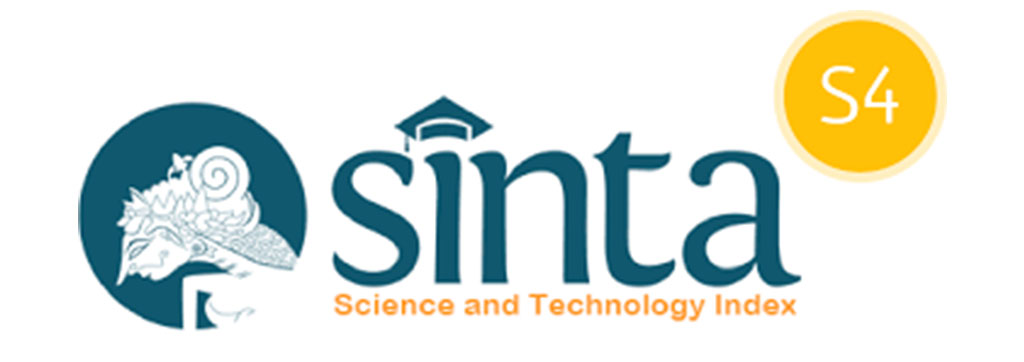EL-BAIT”: (Ecotheology-Based Innovative Technopreneurship): A Conceptual Model Bridging Innovation, Digital Ethics, and Response to Climate Crisis”
Abstract
The increasing pressure for technological innovation in the digital economy has triggered a crisis of values, where technopreneurial practices often neglect ethical, ecological, and spiritual dimensions. This phenomenon highlights a critical gap in current digital business models, which rarely integrate faith-based principles and sustainability frameworks. Drawing from the theories of Triple Bottom Line, Stakeholder Theory, TOE Framework, The House model, and Maqosidus shariah principles, this study proposes a conceptual model called EL-BAIT (Ecotheology-Based Innovative Technopreneurship) that integrates technological innovation, faith commitment, and ecological ethics. The model addresses the urgent need for a holistic entrepreneurial paradigm that fosters both economic competitiveness and socio-environmental legitimacy. This article employs a critical literature review method by synthesizing empirical studies and conceptual frameworks published between 2010–2025 from Scopus-indexed journals and DOAJ. Key variables were clustered thematically and mapped into an integrated conceptual diagram of Eco-theological innovative technopreneurship. The findings reveal three components – Technological innovation, Faith-driven entrepreneurship, and sustainability as the strategic key way of ethical green technology innovation and five core components—faith-led leadership, digital capability, stakeholder empathy, green organizational culture, and sustainability awareness —as the supporting behavior. A real life case study will be used to illustrate the proposed model. This model serves as a normative guide for ethical startup development in Muslim-majority and sustainability-driven societies. Future research is recommended to empirically validate the ELBAIT model through case studies or participatory design involving digital entrepreneurs, policymakers, and faith-based communities.
References
Akmal, S. (2025). Technopreneurship and Educational Development Review (TENDER). STRATEGIC APPROACH TO SUSTAINABILITY-BASED TECHNOPRENEURSHIP: BALANCING THE DYNAMICS OF TECHNOLOGICAL INNOVATION AND SOCIAL RESPONSIBILITY IN THE DIGITAL ENTREPRENEURSHIP ECOSYSTEM. 2(2). https://doi.org/10.61100/tender.v2i2.274
Andhella, S., Djajadikerta, H., & Marjuka, M. Y. (2024). Technopreneurship in Pro-Environmental Behavior for Sustainable Carbon Emission Reduction in Central Kalimantan. APTISI Transactions on Technopreneurship, 6(2), 254–269. https://doi.org/10.34306/att.v6i2.400
Auda, J. (2008). MAQASID AL-SHARIAH.
Brown, K., Adger, W. N., Devine-Wright, P., Anderies, J. M., Barr, S., Bousquet, F., Butler, C., Evans, L., Marshall, N., & Quinn, T. (2019). Empathy, place and identity interactions for sustainability. Global Environmental Change, 56, 11–17. https://doi.org/10.1016/J.GLOENVCHA.2019.03.003
Carradus, A., Zozimo, R., & Discua Cruz, A. (2020). Exploring a Faith-Led Open-Systems Perspective of Stewardship in Family Businesses. Journal of Business Ethics, 163(4), 701–714. https://doi.org/10.1007/s10551-019-04387-2
Child, J. W., & Marcoux, A. M. (1999). Freeman and Evan: Stakeholder Theory in the Original Position. Business Ethics Quarterly, 9(2), 207–223. https://doi.org/10.2307/3857472
Do, T. (2008). Roger’s five attributes of innovation diffusion and online education. 1–180.
Donald A. Palmer. (2021). The Dark Side of Startups: When “Fake It Till You Make It” Goes Wrong. University of California, Davis Campus.
Dunham, L., McVea, J., & Freeman, R. E. (2008). Entrepreneurial wisdom: incorporating the ethical and strategic dimensions of entrepreneurial decision-making. International Journal of Entrepreneurship and Small Business, 6(1), 8. https://doi.org/10.1504/IJESB.2008.017386
Even, B., Crawford, S., Shittu, O. F., Lundy, M., Wertheim-Heck, S., Samuel, F. O., Talsma, E. F., Pastori, G., Thi Le, H., Hernandez, R., Brouwer, I. D., & Béné, C. (2024). From Streets to Tables: Bottom–Up Co-creation Case Studies for Healthier Food Environments in Vietnam and Nigeria. Current Developments in Nutrition, 8(8), 104395. https://doi.org/10.1016/j.cdnut.2024.104395
Fish, A., & Srinivasan, R. (2012). Digital labor is the new killer app. New Media & Society, 14(1), 137–152. https://doi.org/10.1177/1461444811412159
Garbie, I. H. (2015). Sustainability Awareness in Industrial Organizations. Procedia CIRP, 26, 64–69. https://doi.org/10.1016/J.PROCIR.2015.03.003
Gupta, R., & Saraf, D. (2023). Privacy and Security Challenges in Online social media: A Case Study Analysis. Revista Review Index Journal of Multidisciplinary, 3(3), 01–07. https://doi.org/10.31305/rrijm2023.v03.n03.001
Harris, L. C., & Crane, A. (2002). The greening of organizational culture. Journal of Organizational Change Management, 15(3), 214–234. https://doi.org/10.1108/09534810210429273
Ikawati, R., Erwanto, Y., & Purnomo, B. R. (2024). Are online meatball restaurants in Indonesia committed to their declared Halal label? Veterinary World, 17(4), 778–784. https://doi.org/10.14202/vetworld.2024.778-784
Institute for Climate Impact Research, P. (n.d.). Stepping back from the precipice: Transforming land management to stay within planetary boundaries. https://doi.org/10.48485/pik.2024.018
Kaestner, H. . G. J. D. . & I. C. (2021). Faith driven entrepreneur: What it takes to step into your purpose and pursue your God-given call to create. Tyndale House Publishers, Inc..
Khin, S., & Ho, T. C. (2019). Digital technology, digital capability and organizational performance. International Journal of Innovation Science, 11(2), 177–195. https://doi.org/10.1108/IJIS-08-2018-0083
Labrecque, C. A. (2022). To Tend or to Subdue? Technology, Artificial Intelligence, and the Catholic Ecotheological Tradition. Religions, 13(7). https://doi.org/10.3390/rel13070608
Litschka, M. (2025). AI Ethics and the Capability Approach. Genealogy+Critique, 11(1). https://doi.org/10.16995/gc.18499
Liu, X., Xie, L., Wang, Y., Zou, J., Xiong, J., Ying, Z., & Vasilakos, A. V. (2021). Privacy and Security Issues in Deep Learning: A Survey. IEEE Access, 9, 4566–4593. https://doi.org/10.1109/ACCESS.2020.3045078
Lythreatis, S., Singh, S. K., & El-Kassar, A. N. (2022). The digital divide: A review and future research agenda. Technological Forecasting and Social Change, 175, 121359. https://doi.org/10.1016/J.TECHFORE.2021.121359
Mayring, P. (2015). Qualitative Content Analysis: Theoretical Background and Procedures (pp. 365–380). https://doi.org/10.1007/978-94-017-9181-6_13
SGIE Report. (2023). State of the Global Islamic Economy Report.
Tetteh, E. K., Amankwa, M. O., & Yeboah, C. (2021). Emerging carbon abatement technologies to mitigate energy-carbon footprint- a review. Cleaner Materials, 2, 100020. https://doi.org/10.1016/J.CLEMA.2021.100020
Tranfield, D., Denyer, D., & Smart, P. (2003). Towards a Methodology for Developing Evidence‐Informed Management Knowledge by Means of Systematic Review. British Journal of Management, 14(3), 207–222. https://doi.org/10.1111/1467-8551.00375
Wesley Park. (2025). “Chilling Effect”: Indonesian Startup Scandal’s Impact on Southeast Asia’s Investment Landscape. Https://Www.Ainvest.Com/.
Yang, Z., Nguyen, T. T. H., Nguyen, H. N., Nguyen, T. T. N., & Cao, T. T. (2020). GREENWASHING BEHAVIOURS: CAUSES, TAXONOMY AND CONSEQUENCES BASED ON A SYSTEMATIC LITERATURE REVIEW. Journal of Business Economics and Management, 21(5), 1486–1507. https://doi.org/10.3846/jbem.2020.13225
Copyright (c) 2025 Ahmad Sirajuddin, N.W. Islami Rahayu, Ubaidillah

This work is licensed under a Creative Commons Attribution-ShareAlike 4.0 International License.


